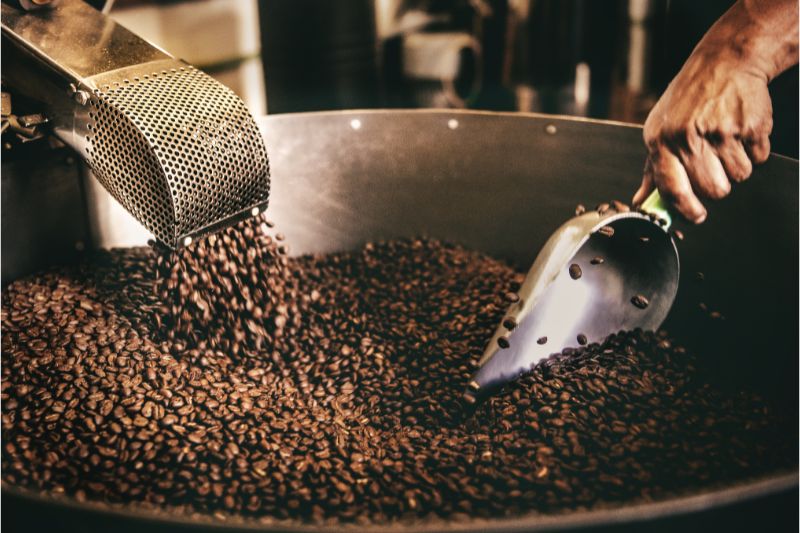No products in the cart.
Why Are Specialty Coffee Beans Better Than Normal Coffee Beans?

If you are a general coffee drinker, an amateur, or a connoisseur, you can choose from two main types – Gourmet/Specialty or Commercial. Gourmet varieties mean preparing the brew with dedication and care. The process applies best practices for milling and carefully selecting harvesting methods to ensure non-defective and ripe beans.
The specialty coffee beans go through roasters’ skilled hands, ensuring an excellent roasting profile for enhancing natural flavours. Artisan roasters also ensure roasted beans get the best packing and storing. The process is completed either with the help of an experienced barista serving the frothy cup or by you, who learned how to brew a rich specialty coffee.
Difference Between Specialty And Commercial Coffee
Specialty coffee is a high-quality variety with an SCA grading of up to 80 and a rich flavour profile like fruity, caramel, or floral. In contrast, commercial one mainly centres around chocolate, nuts, and cacao notes, due to the collection of beans from various sources.
Key Flavour Profile Differences
Commercial Coffee – The commercial taste profile is associated with its better taste, joined by regular flavours like:
- Chocolate and Cocoa
- Nuts (coconut, hazelnut, and pecan)
- Vegetable aromas
Specialty Coffee – There are many aromas and flavours associated with specialty types like:
- Sugar Cane
- Cinnamon
- Citrus: Lime, Berry, Tangerine
- Floral
- Fruits: Strawberries
Benefits Of Specialty Coffee
Two main species are – Robusta and Arabica. While the robusta variety is used widely in commercial types, the arabica variety is preferred for specialty roasters. Since the robusta is cheaper than arabica, it is a significant benefit for instant and commercial ground sellers. The robusta has a burnt taste with a caffeine content of 2.7%. Arabica has a floral and fruity taste. It is carefully roasted because of higher sugars and lipid concentrations with only 1.5% caffeine.
Producers grow their specialty coffee beans with the utmost care, involving different growing conditions for other varieties. The standard harvesting process is hand-picking cherries from shady well-tended trees at peak ripeness. Many farmers also invest in Cupping Labs! Consumers can get plenty of information about a bean’s origin and quality. It is simple to trace a variety of beans, the origin region, the country, the particular farm, growing altitude, roast date, processing methods (semi-washed, natural, washed), roast style (medium or light), and sensory or cupping notes. Moreover, packaging such freshly roasted high-quality beans also needs a bag to protect them from moisture and oxygen with a one-way degassing valve to preserve their excellent taste and natural aromas.
Conversely, the commercial variety is harvested mainly with machines. With machines, there is no guarantee whether the cherries are green, ripe, or damaged. They gather all of what is present on the tree, like leaves and branches. While commercial producers try to remove unwanted objects in coffee, you can easily find stones, branches, damaged beans, or plastic particles mixed among the green coffee beans in packs ready for export.
Is Specialty Better?
Specialty grounds are dated early back to the 1900s, and avid drinkers primarily seek the specialty type. Over the years, many improvements have been there in roasting technology and agricultural practices to help connoisseurs get a high-quality brew. The price difference assures you a consistently rich flavoured aromatic coffee than a bitter and bland taste compared to supermarket varieties.
Conclusion
Thus, with the benefits mentioned above, the specialty variety is the one for connoisseurs who want to experience its taste and start their day with the goodness of diverse aromas.










Leave a Reply